Xi Jinping is the real creator of AUKUS and Quad unity
Paul Keating must be the only senior person in the world unaware of, or unconcerned about, Beijing’s threat.
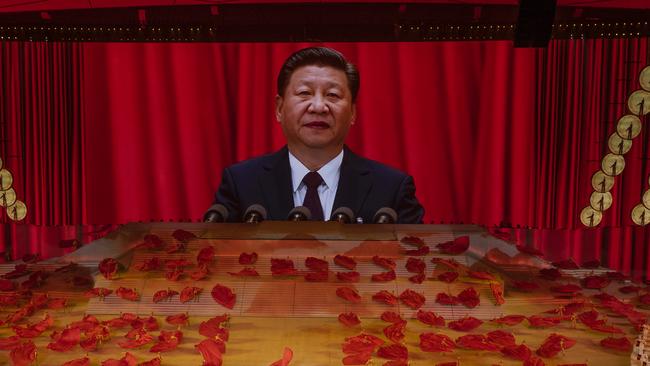
So, as we digest this momentous week in diplomacy and security, here are a series of questions that all have the same answer.
Who is responsible for the new AUKUS (Australia, UK and US) grouping?
Who is responsible for the Quad (Australia, US, Japan, India) coming back to life and holding its first ever in-person summit?
Who is responsible for the US deciding, for only the second time in its history, to share nuclear submarine propulsion technology with an ally, this time Australia (the other was Britain in 1958)?
And finally, who is responsible for the quite historic step of the ALP leadership of Anthony Albanese, Richard Marles and Penny Wong taking their party to support nuclear-powered submarines for Australia?
The answer to all these questions is Xi Jinping. It’s a commonplace to say Xi is changing China profoundly. It’s also true he is changing the world. But as this week shows, he is changing the world in ways not entirely to his liking.
A slew of analysis, not least a brilliant new paper by former PM Kevin Rudd, suggests that Xi is driven by ideology to undertake fundamental structural change to Chinese governance and the Chinese nation.
But before considering that, three features of AUKUS deserve attention. Gareth Evans was surely right to say AUKUS has produced world-class hyperbole. Never before has the whole world responded so seriously to an Australian diplomatic initiative. Scott Morrison should be delighted with the seriousness and gravity that his creation has evoked.
Why is this so? First, because it’s really all about nuclear submarines. And second, because France and its politically struggling President have acted as the most superb publicity agents that AUKUS could have had.
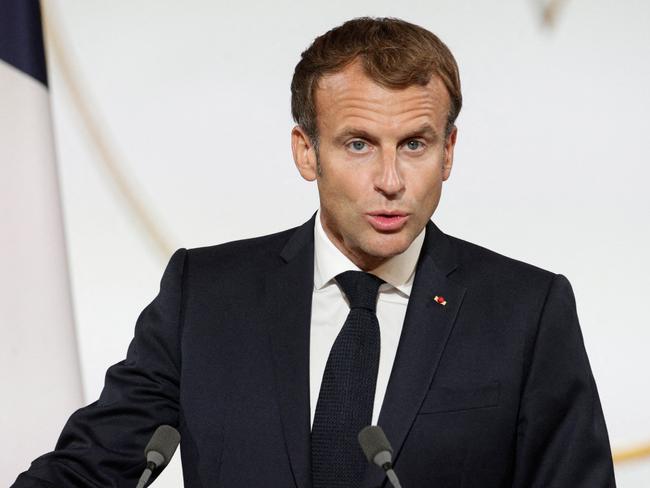
The French have no grounds for complaint. Their submarine contract was routinely structured as a series of contracts with many specific points at which Canberra could cancel. Deciding the capability you’re spending $90bn on is no longer the best capability available is a perfectly legitimate reason to pull out.
The French will get over their ridiculous tantrum. One take-out is that they are too emotionally unstable ever to go into this kind of long-term partnership with again. More immediately, much more than Beijing’s reaction, which was hostile but by their standards quite muted, the French meltdown guaranteed AUKUS got worldwide attention.
The second strong feature out of AUKUS is that the Morrison government must move with all deliberate speed and continue to take the people with them by steady advocacy and clever publicity. It will certainly take time to acquire nuclear-powered subs. It will be a decade at least before we could build them in Adelaide. And there are stages of safety, certification and assurance in which there are no shortcuts.
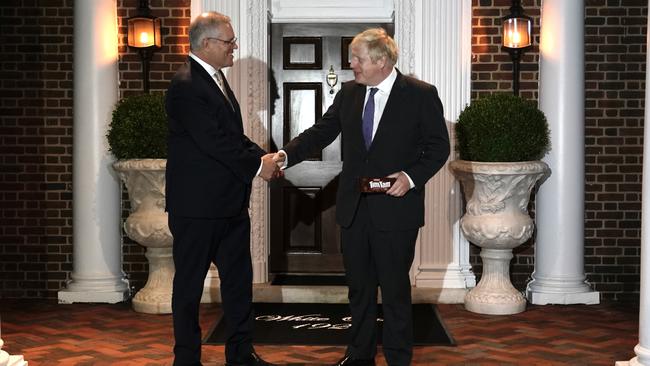
The French publicity campaign magnifying AUKUS has probably led to an enhancement of the effect of bringing the US closer to us. But this whole program delivers no new capability to Australia – as opposed to recruiting some Americans and Brits to defend us – until there is a nuclear sub with an Australian flag.
A delay of nearly two decades in producing such a sub not only means it’s an irrelevant capability in our forthcoming security challenges. It also means it will probably never happen. Who knows if the next US president will be as favourably disposed. Therefore we must try to lease a nuclear sub, with a hybrid crew, in the next five or six years, and announce it sooner than that.
The other critical element is Labor’s reaction. Albanese and Wong are from Labor’s left. They are not militaristic uber hawks and Sinophobes. Neither is the steady, judicious Marles. He’s from the party’s right. But they have all absorbed the reality of Beijing’s belligerence and dangerous behaviour under Xi. They accept the military assessment that a nuclear sub meets Australia’s needs.
Three Labor elder statesmen provided detailed reactions. Evans wrote a fine essay – a bit wordy of course and with the normal throat-clearing caveats – saying Australia had every right to get the best military equipment possible, that a nuclear-powered sub was a military necessity and that such a sub is safe (there have been no accidents with US nuclear subs) and does not contravene the Nuclear Non-Proliferation Treaty.
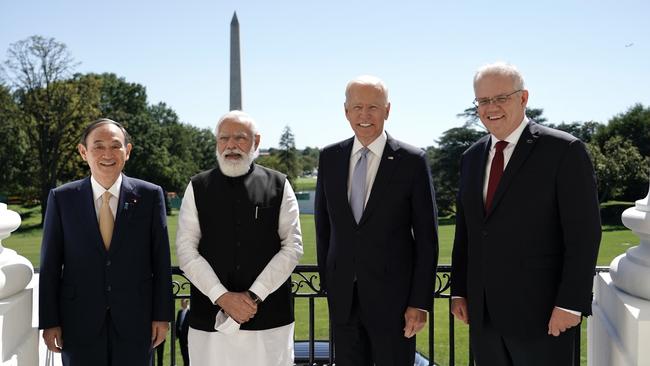
Rudd wrote a strong denunciation of the Morrison government in Le Monde. But his criticism was that Morrison had mistreated the French. Rudd did not oppose nuclear-powered subs in principle and had no criticism of the Biden administration, nor, in principle, of AUKUS. I think Rudd’s criticisms overblown but they entirely inhabit the real world.
Paul Keating, on the other hand, more of a Labor hero than Rudd but with far less foreign policy expertise or standing, blew a gasket in a wildly personalised attack on Wong, Albanese and Bill Shorten.
In a bizarre piece, Keating claimed that acquiring a nuclear sub would be provocative to China and compromise Australia’s national sovereignty by making us subservient to US strategic policy. Keating also scoffed at the idea that Beijing could ever be a military threat.
He must be the only senior person in the world unaware of, or unconcerned about, Beijing’s relentless cyber attacks, or its recent demand that any ship seeking peaceful transit through the 90 per cent of the South China Sea that Beijing bizarrely claims, needs to formally notify the Chinese of their presence. Or their aggression against India, or their near constant incursions into Japanese air space, or any other of their many intimidatory actions.
Keating was an immensely successful Treasurer. As PM he was superb in foreign policy; no one supported his Asia-centric diplomacy more than I did. But he is now effectively repudiating everything he stood for then. And he refuses, whether for emotional or intellectual reasons, to acknowledge the reality of contemporary China.
Keating is now on a unity ticket with his old nemesis, former Malaysian leader Mahathir Mohammed, in saying that AUKUS is provocative. In government, Keating was a steadfast supporter of the US alliance. The whole of his argument with Mahathir, which was at least as graceless and clumsy as anything Morrison has allegedly done to the French, was that Keating believed in the centrality of the US to Asian security, politics and economy, while Mahathir wanted a diminished US role.
Keating was part of the Labor government that modernised the joint US/Australia communications facilities at Pine Gap. More than any other single capability, these facilities would be a target in any war against the US by a near peer competitor. But Keating then was a strategic realist who understood that we gained from the alliance and also contributed through it to global security. His greatest foreign policy achievement, his involvement in APEC, depended entirely on helping convince Bill Clinton to convene APEC at the heads-of-government level. Keating’s influence in Asia came in part from his influence in Washington.
Similarly, Keating was party to defence policies in which Australia is completely reliant on US weapons systems and logistics.
Today Keating is a sad caricature, almost a mirror reversal, of his old self. For Australia to possess nuclear-powered submarines, in which the reactors would not need servicing for the entirety of their 35-year life, makes us better able to defend ourselves and enhances our sovereignty.
Critics of the Labor Party should not conflate Keating with Rudd and Evans.
For those analysts who deal with the reality of modern China, a whole new raft of analytical studies about Xi’s moves within China – and his dramatic changes to Chinese national policy and orientation – are providing a new level of understanding of what the Xi presidency means to China, and the world.
There is a slew of such analyses to draw on but one of the best, which brings much of the work together in a coherent whole, is a recent paper for the Asia Society by Rudd entitled Xi Jinping’s Pivot to the State. Rudd rightly argues that ideology is much more important in modern China, and certainly in understanding Xi, than most Western analysts realise.
Rudd doesn’t use these words but in effect Xi’s historic project is the full-scale restoration of orthodox communist ideology, root and branch, throughout every sector of Chinese life.
The demise of Soviet communism was emphatically not the demise of Chinese communism. All of Xi’s actions, Rudd argues, are linked by a “red thread”.
Rudd attributes Xi’s big moves to three causes: ideology, demographics and economic decoupling from the US. I have my disagreements with Rudd on different things, but he is a superb analyst of China. His paper outlines a wide range of economic actions Xi has recently taken that have wiped more than $US1 trillion off the stockmarket value of Chinese tech companies, shut down numerous profitable digital services, and effectively shut down the nation’s vast private tutorial sector. There have also been social moves, such as calling for an end to the portrayal of “effeminate sissy men” on television.
All of the economic measures indicate Xi is reversing the long-term Chinese reform agenda of allowing the market to allocate a good deal of resources and the private sector to grow. Xi is determined to refashion the Chinese economy, with state entities dominant and growing, and with absolute Communist Party control of the economy and society.
Xi is determined to end the influence of private-sector billionaires, to redistribute income, and to increase central control. His New Development Concept involves a so-called dual circulation economy that will reduce China’s exposure to trade.
At the same time, he wants the sheer size of the Chinese economy to act as a “giant gravitational field” which pulls in and dominates the world economy, so that China is simultaneously more dominant but less exposed.
In Rudd’s view, Xi is moving the economy to the left, meaning more state control, and nationalism to the right, becoming more strident and belligerent. Not only is Xi pivoting the economy to state control but, within the governing structures of China, the Communist Party is more important than the formal organs of the state, and dominates them.
State-owned enterprises are being expanded and increasingly are taking equity shares in what were once private-sector Chinese companies.
Xi interprets modern communist history as encompassing three eras: under Mao Zedong China “stood up”; under Deng Xiaoping it “grew rich”; and under Xi it will “become powerful”. In 2013, the party notionally decided to emphasise the private sector, but Xi has been rowing back against that ever since he assumed office in 2012, and the direction was formally reversed in 2017.
Xi seems driven by great urgency. This might be because of his nature, or his age. In his late 60s, he might feel that there is a limited amount of time to accomplish what he wants.
But Xi is also driven by what he sees as contradictory elements of both opportunity and danger in the external environment. Xi, like the rest of the Chinese leadership, is convinced of Western decline, especially US decline. At the same time, Beijing is scared of US military capabilities and mindful of the US’s hi-tech virtuosity, relatively strong economic growth and, until the Covid pandemic, high population growth.
China, on the other hand, faces steep demographic decline. Rudd reports that China’s fertility rate now stands at 1.3, below even Japan’s. Soon it will face huge demands on retirement income, health expenditure and a declining population and workforce.
The most important take-out is that Xi is leading a powerful resurgence of communist ideology. This already dominates Chinese politics. Xi is bringing it to dominance in the Chinese economy, and it increasingly dominates Chinese foreign policy.
Rudd doesn’t say this but communism in foreign policy is traditionally paranoid, belligerent and militaristic. Most analysts think Xi’s economic and social policies will harm the Chinese economy. Combined with aggression abroad, that’s an extremely dangerous combination.
A final thought: it certainly justifies AUKUS.


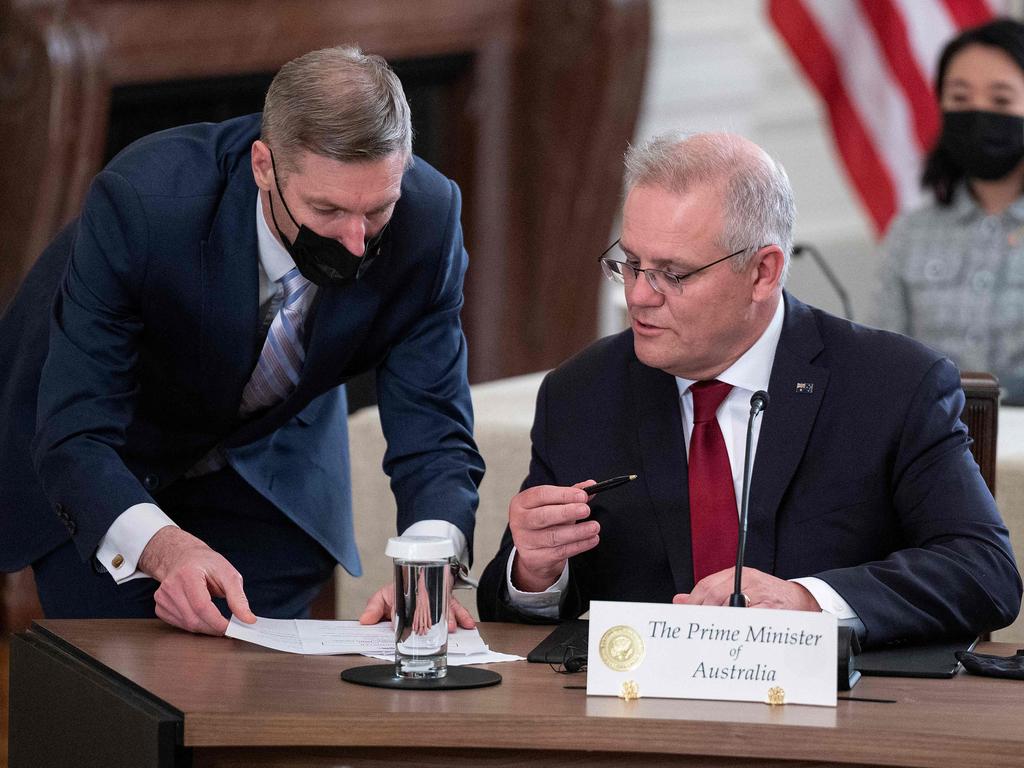
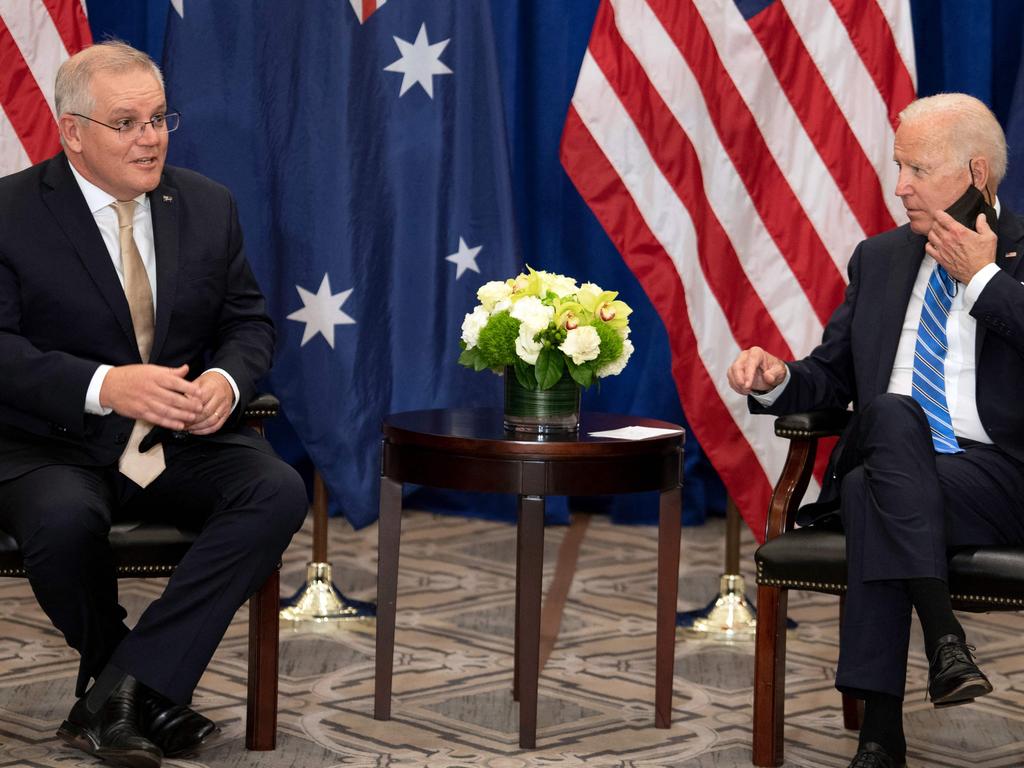
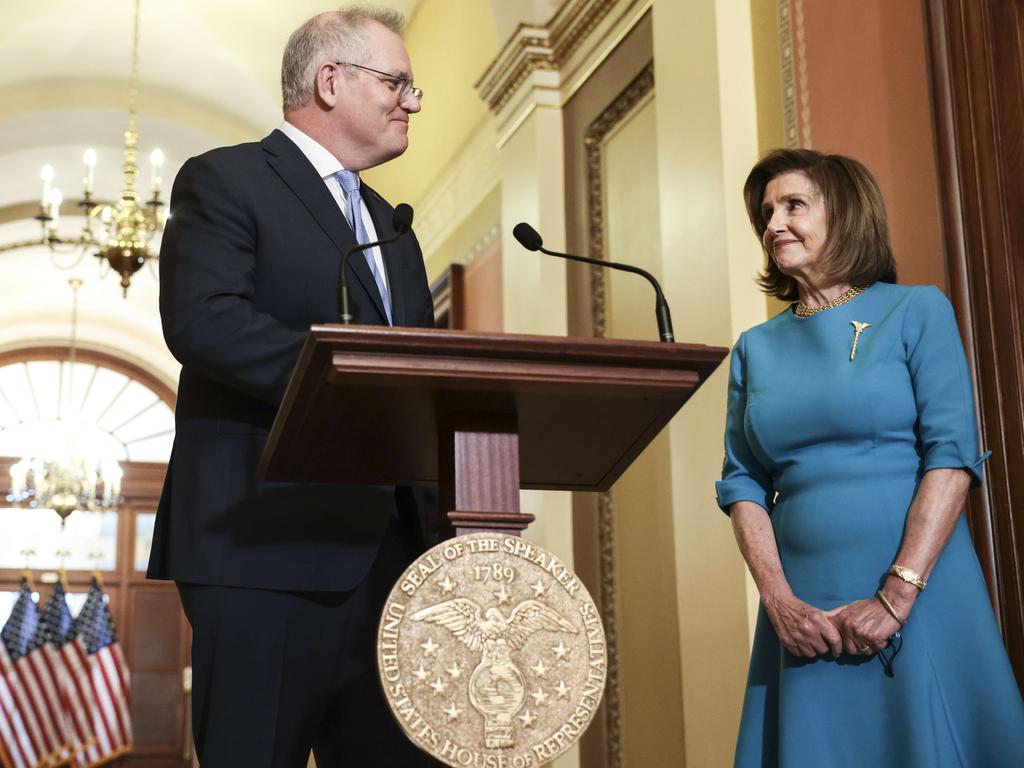


All security roads lead to China, and in China everything leads to its President and General Secretary of the Chinese Communist Party, Xi Jinping.